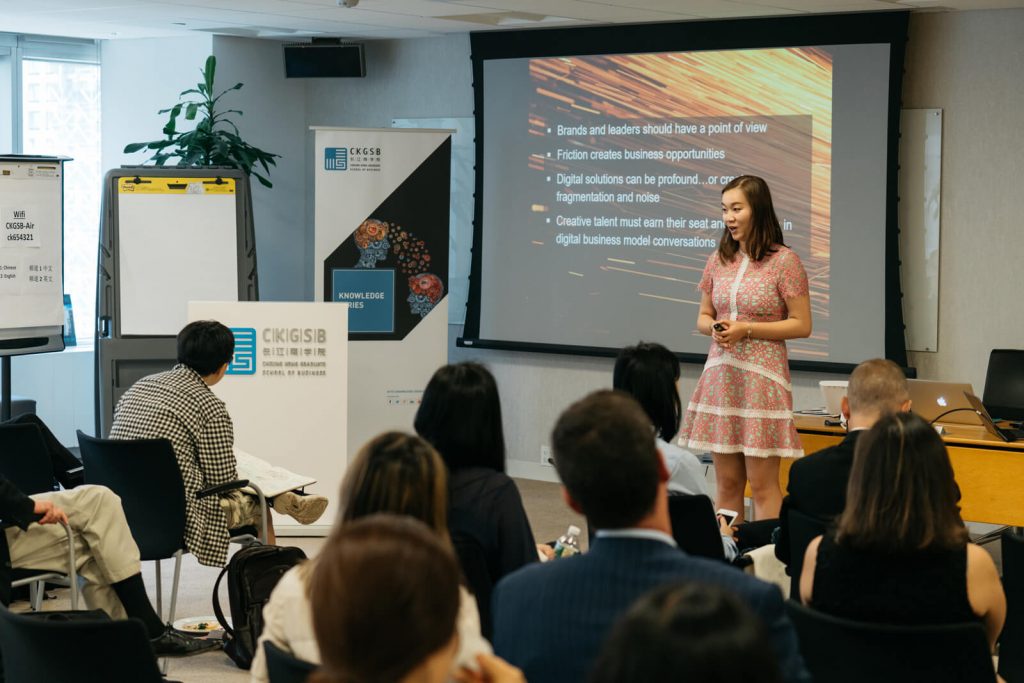The quick-fire world-wide of digital media has meant that there are more ways than ever for one brand to become distinct from the other.
It is sometimes tricky to manage, but C-suite executives from China, the United States and elsewhere have to build and lead customer-focused organizations in the digital landscape of the world.
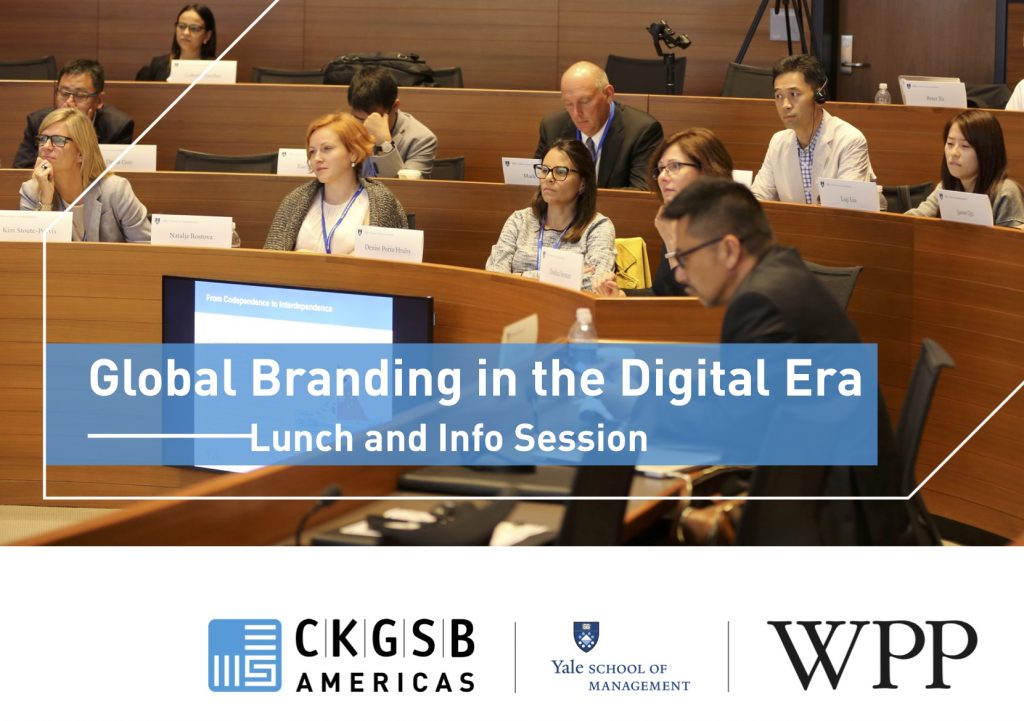
Global Branding in the Digital Era is a program presented jointly by the Cheung Kong Graduate School of Business (CKGSB), the Yale School of Management and WPP, a global leader in marketing services.

“My personal perspective is that we, as individuals and as leaders, should have a point of view on the world around us,” Doshia Stewart, the Director of Corporate Brand & Marketing for Allegion, and Chief Marketing Officer of Allegion Ventures, said in a luncheon presentation on August 16.
Stewart is also a member of the HR & Communications Leadership Team. She is based in Carmel, Indiana.
Allegion is a US$2.4 billion company with 30 brands and 10,000 employees around the world.
It specializes in products that secure the doorway and action sport vehicles. The company offers the convenience of apps, cloud solutions and the Internet of Things (IOT).
Stewart said the people in her company “are working with all types of technology to benefit employees, customers and learn more about how it can help us”
This can range from artificial intelligence and data science to cloud tech, edge computing and the Ethernet.
“We are being recognized as a tech-enabled manufacturer,” she said, adding “we must make sure that our brands are relevant for the local market.”
She cited the global branding class where a WPP presentation “was very helpful in my understanding of the equity built in Chinese brands and the progress they are making outside Asia, and was helpful on a recent brand positioning project for China.”
Before Allegion, Stewart was senior director for marketing for Roche Diagnostics Diabetes Care, and worked in its Indianapolis, Indiana, and Mannheim, Germany locations.
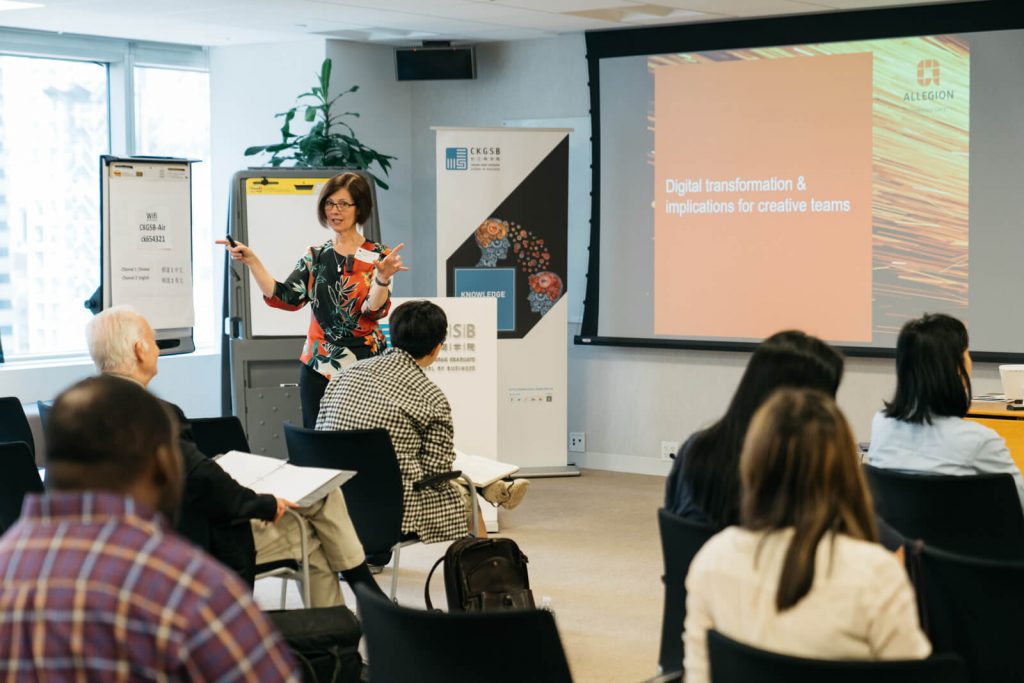
“Global Branding in the Digital Era was a great place to see and learn from immersion into the world of tech and digital transformation,” Stewart said.
A branding course, she says, creates “a unique experience,” especially for people who come from different backgrounds so they can learn from one another.
“I’ve worked with Asian colleagues for years, yet the way the course brought us together, the way we had to form teams and compete and created a new way of communicating was different; it was not just about cultural understanding but changing ourselves,” Stewart explained.
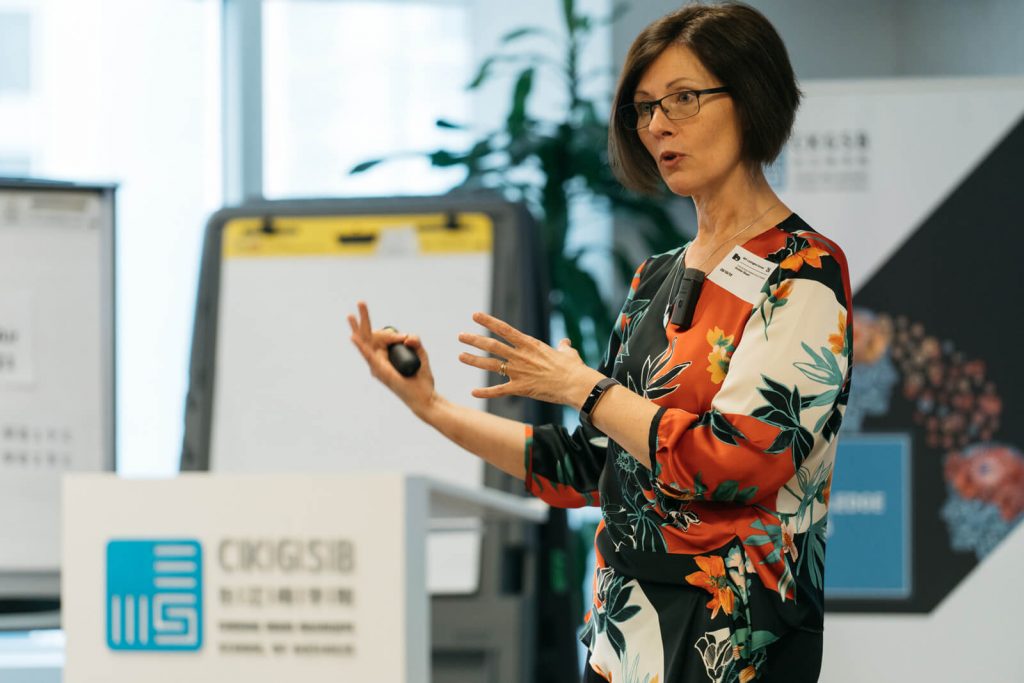
She added that this program is not just another marketing program, but one that introduces the most recent technologies and how you can tell “your brand story on the global scale.”
“For a Western Caucasian, it means I had to slow down, really understand and I understood the contribution and insight of others even though I was not fluid in their language and I was the minority looking in.”
For Stewart, that meant having to “depend on others to convey meaning, to trust, to be open. It was a profound experience that changed me.”
In the branding course, friction is a source of opportunity and many of the start-ups in the course were able to quickly solve and then build a business around it, the Allegion executive said.
But using these standalone tools and solutions can lead to fragmentation.
“If we’re not careful, it will create a disconnected and frustrating experience for customer. Think about the end-result, the objective rather than the latest tech, can you simplify the complexity,” Stewart said.
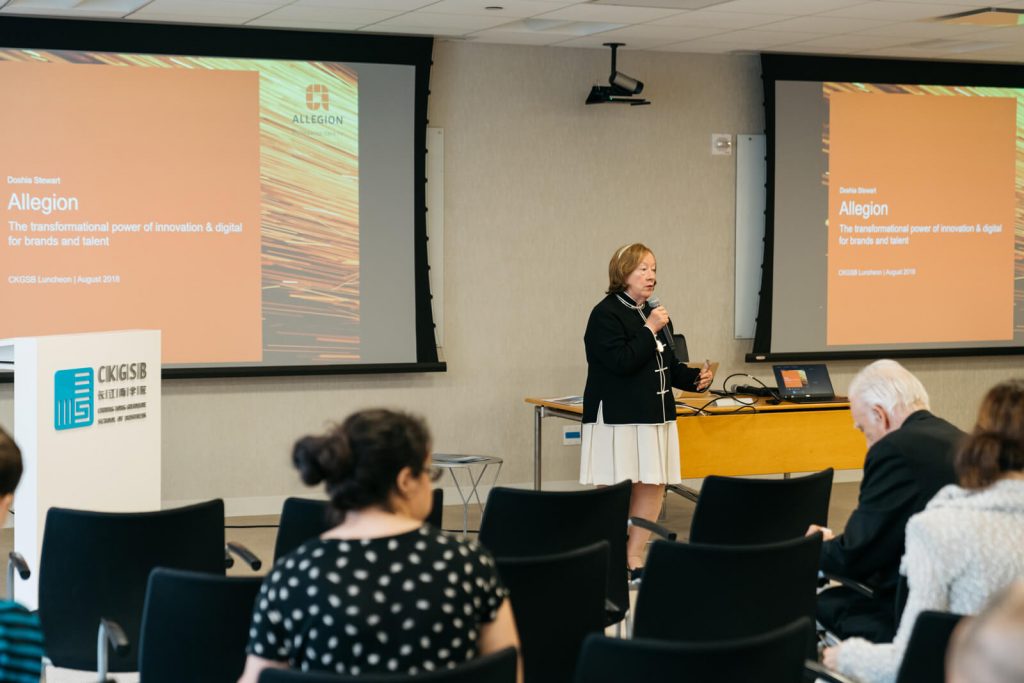
In the case of Allegion, it approaches thought leadership in what it calls a programmatic manner, with their futurist and global thought leaders introducing ideas in early stages and then transitioning to the business and product brands.
Companies need to be able to integrate these concepts when they roll out their products to customers. Their ability to adroitly implement this part of the business would go a long way in dictating their eventual success.
The digital revolution is transforming industries, sectors and the companies involved.
“Companies and brands have choices,” Stewart said. “(But) status quo is really not an option in today’s world.”
